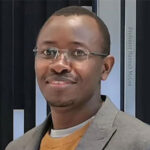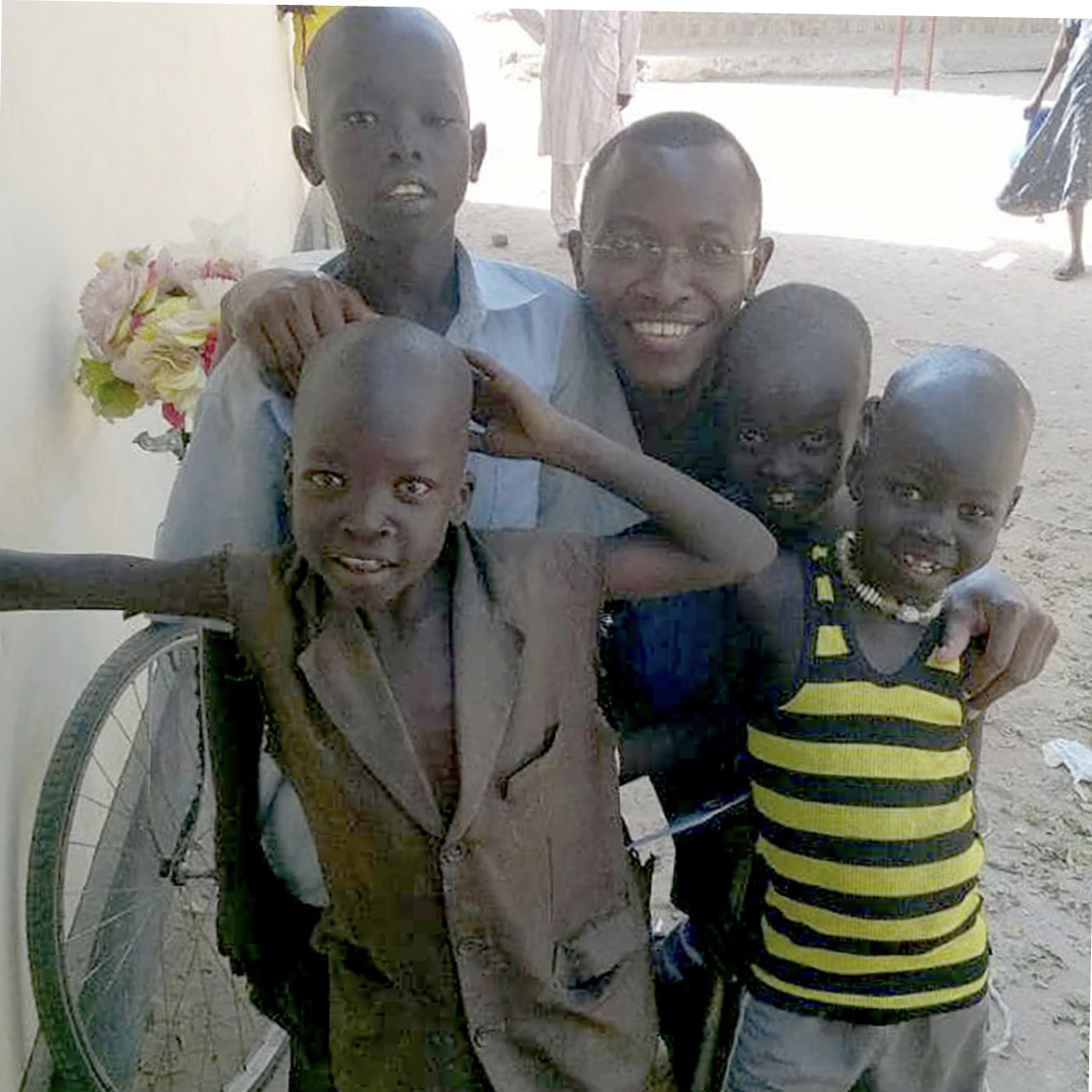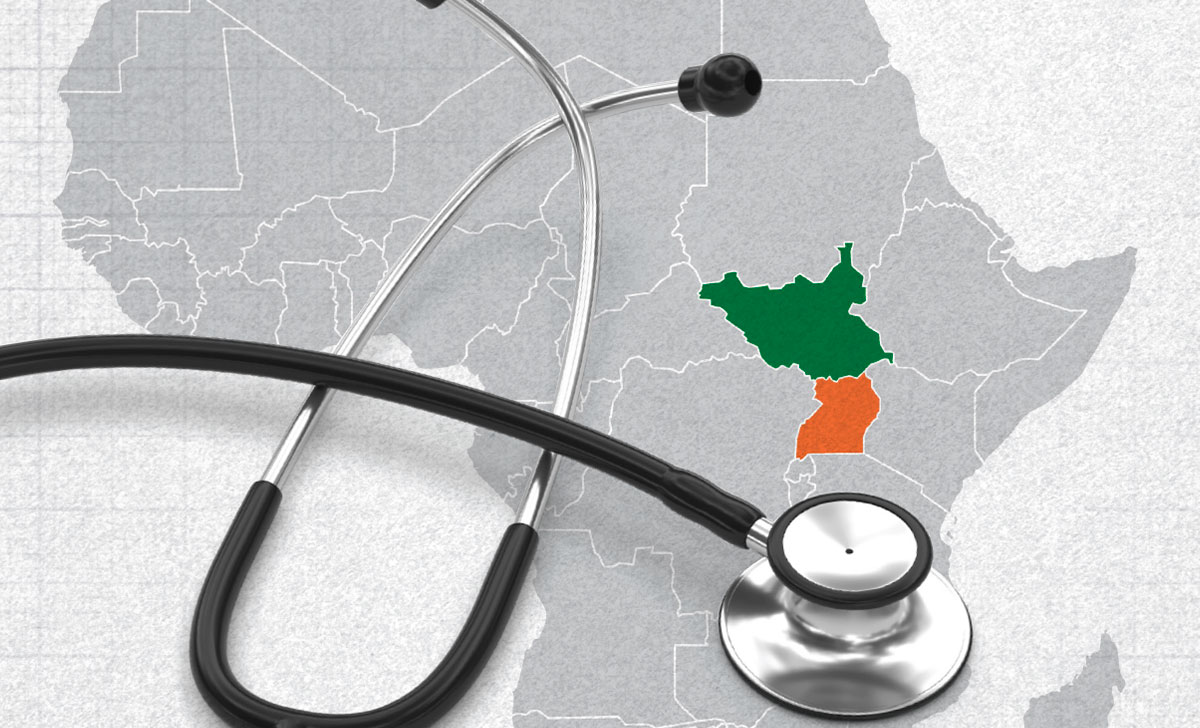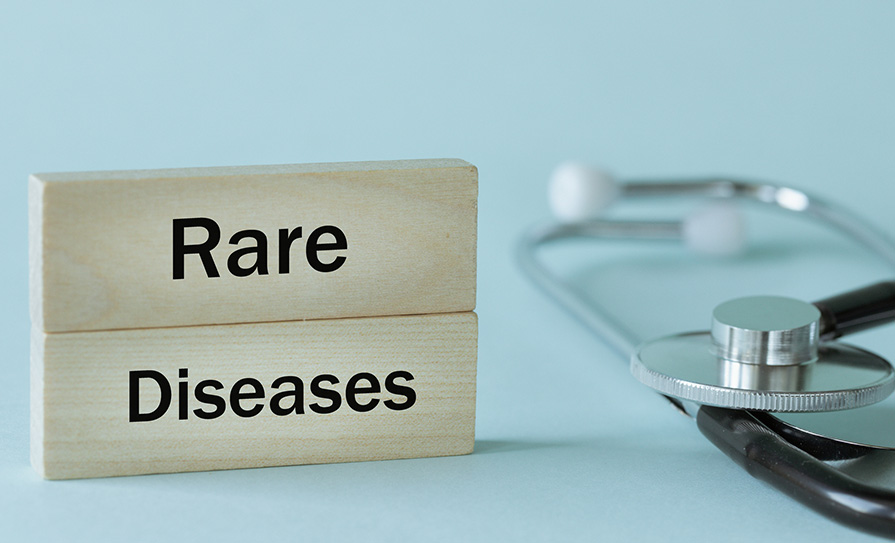In the third part in her series ‘On the frontlines’, Bette Browne speaks with Dr Paul Okeny about the challenges involved in working as a surgeon in South Sudan and in his native Uganda.

As civil war was raging across the new nation of South Sudan, Dr Paul Okeny was working inside a make-shift theatre battling to save the life of a teenage girl and her baby.
“It was around the height of the civil war and there was danger everywhere. I was in a very remote area in South Sudan to set up a surgical unit. Just a few days after I arrived, a young girl of about 18 showed up who was pregnant. She went into labour and was trying to push but there was an obstruction and we needed to operate but we had no theatre yet,” Dr Okeny recalled in an interview with the Medical Independent (MI).
“The nearest hospital was about two hours away and there was a lot of fighting going on. It was about nine o’clock at night and putting this young girl in an ambulance would have been too dangerous for her and those accompanying her, so I had to choose between risking that and putting together a make-shift theatre to operate.
“I knew we had a good team of midwives and a nurse anaesthetist, so we set about creating a make-shift theatre in the village. We were able to do the surgery and to our delight it worked and the girl delivered a very healthy baby. Then we saw the villagers had gathered outside and everyone started clapping. They had never seen such a major operation before in the village.”
The same night Dr Okeny and his team saved another woman from death.
“We had to prioritise and work on the younger girl who still had a live baby. The older lady, who was about 40, had a dead foetus at term. We couldn’t put her to sleep because she was very ill and waking her up following the operation would be a challenge as we didn’t have access to ICU. Using local anaesthetic, we opened into her uterus and removed the dead foetus.” The woman was very grateful to have received life-saving care and “a couple of weeks later she came back to us and brought us some live chickens. It was a wonderful experience. We saved three lives and everyone was so happy.”
In South Sudan, life is tough for most people and danger is ever present. The country is regarded as one of the most dangerous in the world for humanitarian workers. Since 2013, more than 100 aid workers have been killed in the country, according to Human Rights Watch.
Civil war
On 9 July 2011 after a long conf lict, South Sudan gained its independence from Sudan. Soon, however, the new country descended into a bloody seven-year-long civil war.
Clashes between groups in the north and south began before Sudan even gained independence from Britain in 1956. Sparked initially by a mutiny in the south, the subsequent violence left up to two million people dead, many from starvation, during two civil wars, from 1955 to 1972 and from 1983 to 2005.
The creation of South Sudan grew out of a 2005 peace deal between the pro-Arab Muslim north and the predominantly Christian south of Sudan. But clashes resumed between splinter groups, government factions, and rebels. A shaky accord was agreed by the warring parties in 2018 and the country’s first general election is scheduled to take place in 2023.
I had a health background too because my mother was a midwife and I grew up within the premises of a local health unit in Karamoja
The conf lict has resulted in over two million people f leeing their homes, usually to neighbouring Ethiopia and Uganda, where Dr Okeny was born. Basic infrastructure such as health and education facilities have been destroyed. Fighting has also damaged the country’s economy, contributing to soaring inf lation. Food prices continue to rise and 70 per cent of families in South Sudan go hungry.
As many as 6.3 million people, over half the country’s population, are severely food insecure. Famine was declared in 2017 and although humanitarian aid, including from Ireland, led to an improvement in the situation, current food security levels are still dire. “It is devastating to see the death, displacement, human rights abuses and human misery that has dominated.
South Sudan’s first years as an independent state,” commented Irish Foreign Affairs Minister Simon Coveney at the time of the famine.
“We know that this is largely a man-made conf lict. We can – and we will – keep giving humanitarian aid to save lives, but the only way we can move towards supporting long-term sustainable development in South Sudan is through a comprehensive political solution.”
But in the intervening years the country has continued to suffer greatly, with over eight million people estimated to be in need of humanitarian assistance in 2021, according to a report by the World Bank. Added to this already perilous situation is the Covid pandemic.
“Communities were hit hard by the triple shock of intensified conf lict and sub-national violence, a second consecutive year of major f looding, and the impacts of Covid-19, exacerbating an already dire humanitarian situation,” the World Bank report said.
Health facilities are particularly badly impacted, Human Rights Watch says. “Conf lict has caused health facilities to routinely face shortages of key medical supplies putting further civilian lives in danger. The fighting has also compounded food insecurity, with malnutrition becoming a greater threat.”
Against this background, it is easy to see why Dr Okeny’s work setting up a surgical service at a newly built hospital in a very remote area in South Sudan made such a difference for people. Indeed, the desire to make a difference in people’s lives was a major reason why he became a doctor in the first place in his native Uganda. His mother’s work as a midwife also inspired him to devote himself to medicine.
Karamoja
Dr Okeny was born in 1982 in the Karamoja Region, in north eastern Uganda. “I thought at an early age that the best way to serve the people was to be a doctor or [to work] in a similar profession,” he told MI.
“I had a health background too because my mother was a midwife and I grew up within the premises of a local health unit in Karamoja.”
The Karamoja region is made up of dry grasslands and semi-nomadic cattle herders. The region’s dependence on agriculture makes people there vulnerable to changes in weather patterns and devastating droughts, which occur about every two to three years. Households that do not own livestock are particularly vulnerable to food insecurity.
But Karamoja is also a region with potential. It is ecologically diverse with opportunities for crop and livestock production and it has tourism potential. It is one of the most richly endowed regions in Uganda, with over 50 different minerals, including gold, silver, copper, iron, gemstones, limestone, and marble, although the scale and accessibility of all of these resources is not yet fully established. This represents a potential source of income for the region, but also increases the risks of exploitation, for example through land grabbing.

Dr Paul Okeny with local children
The Irish Government has been assisting Uganda as part of an aid programme that began back in 1994 and poverty rates have been declining in recent decades (from 50 per cent in 1992 to below 20 per cent in 2012).
Today Uganda is a growing economy and an important factor in the region, but there are high levels of inequality, according to an Irish Aid strategy paper. Over 90 per cent of people in Karamoja are classed as poor and vulnerable, as opposed to just under 11 per cent in the capital Kampala.
Uganda’s burden of disease is dominated by communicable diseases, which account for over 50 per cent of morbidity and mortality, according to the World Health Organisation (WHO). Malaria, HIV/ AIDS, tuberculosis and respiratory, diarrhoeal, epidemic-prone, and vaccine-preventable diseases are the leading causes of illness and death. There is also a growing burden of non-communicable diseases, including mental health disorders. Maternal and perinatal conditions further contribute to the high mortality.
Neglected tropical diseases remain a big problem in the country, affecting mainly rural poor communities. Dr Okeny said there are also wide disparities in health status across the country because of socio-economic, gender and geographical differences.
The major challenges affecting the health system are the lack of resources to recruit, deploy and retain health workers, particularly in remote localities; ensuring quality of the healthcare services delivered; ensuring reliability of health information in terms of the quality, timeliness, and completeness of data; and maintaining medicines and medical supplies.
The WHO says other key problems are the emergence of antimicrobial resistance due to the inappropriate use of medicines and poor prescription practices and the inadequate control of sub-standard, spurious, falsely labelled, falsified or counterfeit medicines.
The charity VSO Ireland launched a maternal and neonatal health programme in Karamoja in November 2018 with the help of funding from Irish Aid. This programme focuses on promoting and extending health services to pregnant adolescent girls, who are particularly at risk when giving birth, and to their babies. Irish volunteers work with Ugandan volunteers and local partners to increase local knowledge of disease prevention, diagnosis, and treatment to save the lives of more mothers and babies.
Surgical training
Driven by a desire to help alleviate such problems and equipped with a government scholarship to study medicine, in 2002 Dr Okeny headed to Mbarara, south western Uganda, for his undergraduate degree and went on to do his postgraduate degree in Makerere University in Kampala.
After five years of university, he went back to northern Uganda to do his internship from 2007 to 2008 at St Mary’s Hospital in Gulu District. The hospital is administered and managed by the Catholic Archdiocese of Gulu and most of its funding comes from Italy.
Their need brings out the raw clinician in you. It brings you back to what you can do clinically
Dr Okeny remained in Gulu for two more years doing further training before formally embarking on postgraduate surgical training.
Later, he was asked by CUAMM, the Doctors with Africa NGO, to set up a surgical service at one of their newly created hospitals in remote South Sudan.
“I was glad that I said yes because it was the best experience I have had as a doctor. There was a great need there for doctors. It was a very basic and very raw environment. The theatre was still under construction and almost no laboratory and not much human support around you, just one other doctor, no properly trained local nurses. It was very, very challenging.
“I treated lots of gunshot wounds. There were many tribal conf licts and cattle rustling. I remember treating a young man of about 24 who had gone to steal cattle and unfortunately sustained serious gunshot wounds. I found out later that his father was a chief in the local village. He was so happy and thanked me and promised me his daughter in marriage. I thanked him and said I would think about it.”
It was a rare moment of light relief for the young doctor.
When he returned to his native Uganda after 10 months, Dr Okeny faced a different set of challenges to those he had experienced in South Sudan. “I think the main problems in Uganda are not really medical, they are more about system and support issues, especially in rural areas.
“Uganda is producing a lot of doctors and has reasonable medical technology and service technicians. For example, five years ago endoscopy was a luxury, but now it’s available in most hospitals within the cities. Laparoscopy might be expensive, but it is available, though not in rural areas.
“As a surgeon you depend on other people doing their part, making sure there’s blood in the blood bank and that an oxygen supply is available. Sometimes you might have to sit down and wait for hours for all these things to be in place before you actually do the operation. So you could spend more than half of your day just waiting to do the operation.” These are the kinds of system issues he constantly faces, especially in remote areas.
The day after Dr Okeny spoke with this newspaper, he returned to his hospital in the Ugandan capital Kampala after a period as a research scholar at RCSI looking at patient-centred care, which he is now developing further in Uganda. “I have my qualifications, but at the end of the day everything centres around the patient. These are the people I want to help and I hope this improves my skills dealing with patients.”
Indeed, for Dr Okeny it all goes back to his reason for becoming a surgeon – helping people. He has spent much of his time caring for those in deprived rural areas by opening much-needed surgical departments in rural hospitals in his native Uganda and neighbouring South Sudan.
“In the cities it’s usually fine, there are plenty of doctors. But deep in the rural areas, in the villages, there are people who take months to see a doctor when they need one. Their need brings out the raw clinician in you. It brings you back to what you can do clinically. In the rural areas the doctor in you has to come out.”













Leave a Reply
You must be logged in to post a comment.